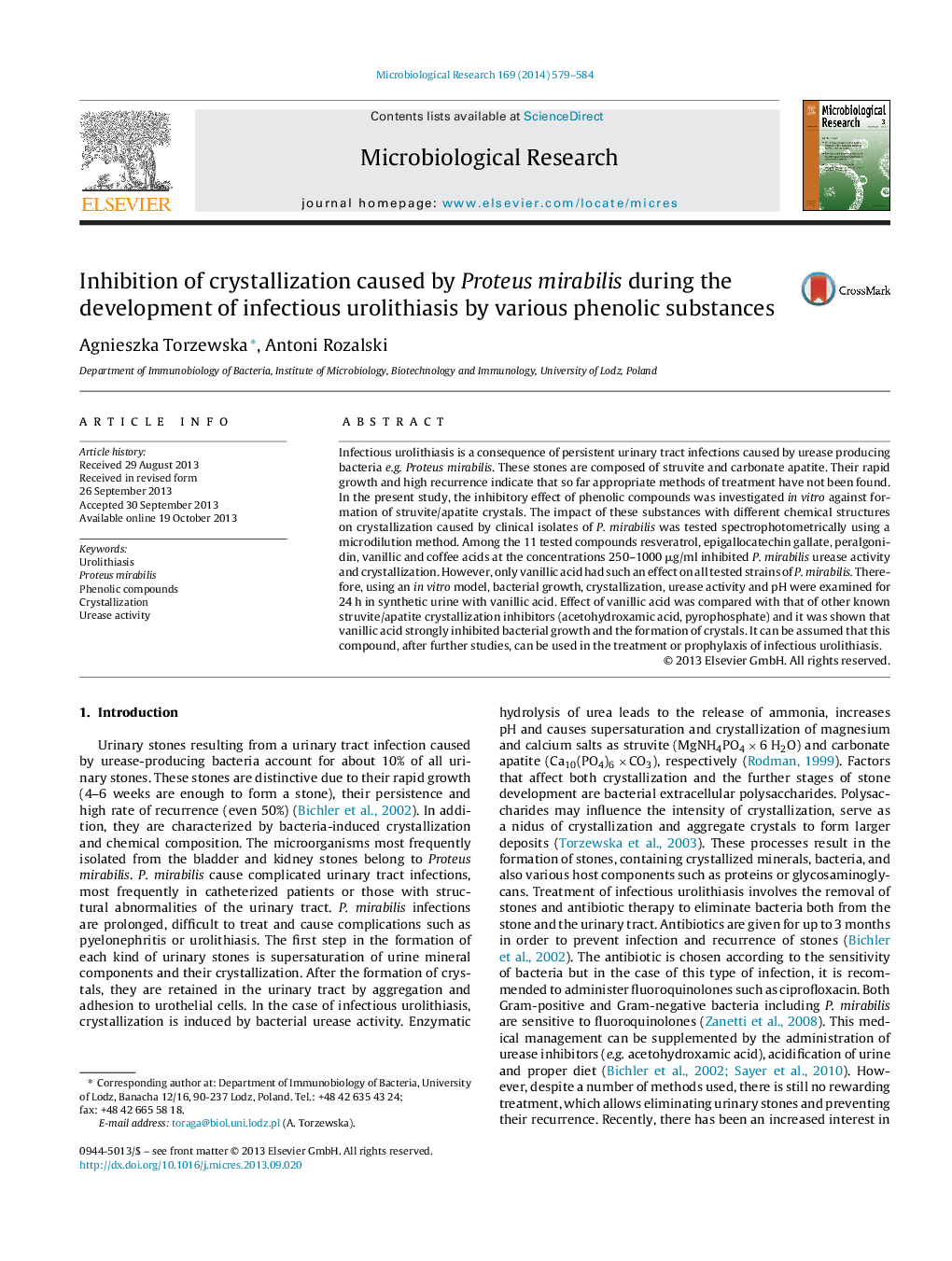| Article ID | Journal | Published Year | Pages | File Type |
|---|---|---|---|---|
| 2092232 | Microbiological Research | 2014 | 6 Pages |
Infectious urolithiasis is a consequence of persistent urinary tract infections caused by urease producing bacteria e.g. Proteus mirabilis. These stones are composed of struvite and carbonate apatite. Their rapid growth and high recurrence indicate that so far appropriate methods of treatment have not been found. In the present study, the inhibitory effect of phenolic compounds was investigated in vitro against formation of struvite/apatite crystals. The impact of these substances with different chemical structures on crystallization caused by clinical isolates of P. mirabilis was tested spectrophotometrically using a microdilution method. Among the 11 tested compounds resveratrol, epigallocatechin gallate, peralgonidin, vanillic and coffee acids at the concentrations 250–1000 μg/ml inhibited P. mirabilis urease activity and crystallization. However, only vanillic acid had such an effect on all tested strains of P. mirabilis. Therefore, using an in vitro model, bacterial growth, crystallization, urease activity and pH were examined for 24 h in synthetic urine with vanillic acid. Effect of vanillic acid was compared with that of other known struvite/apatite crystallization inhibitors (acetohydroxamic acid, pyrophosphate) and it was shown that vanillic acid strongly inhibited bacterial growth and the formation of crystals. It can be assumed that this compound, after further studies, can be used in the treatment or prophylaxis of infectious urolithiasis.
